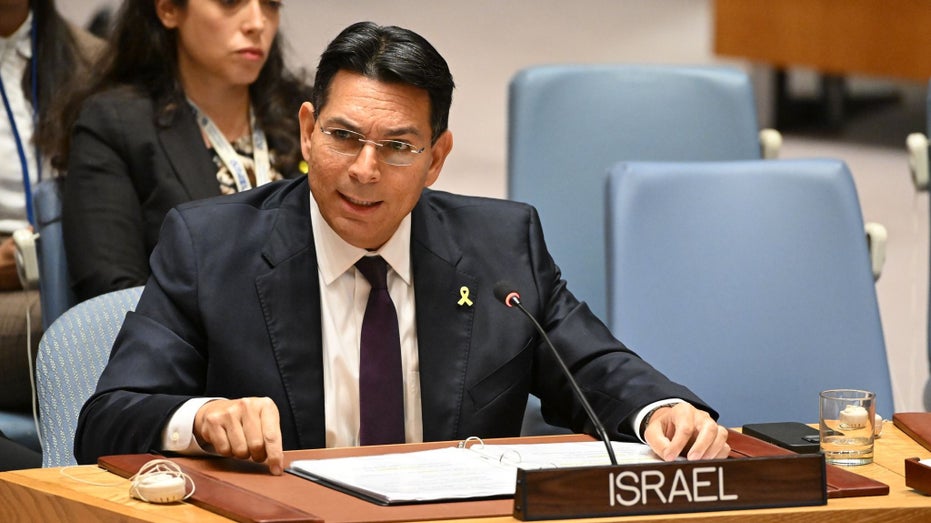Israeli Ambassador Criticizes UN's 'Mafia-Like' Tactics Against US-Backed Gaza Foundation
Israeli U.N. Ambassador Danny Danon condemns the UN's alleged mistreatment of NGOs collaborating with the Gaza Humanitarian Foundation.

Israeli Ambassador to the United Nations, Danny Danon, sharply criticized the U.N. during a Security Council session on Wednesday, accusing it of employing coercive tactics to block NGOs from collaborating with the newly established, U.S.-backed Gaza Humanitarian Foundation (GHF). Danon described the U.N.'s alleged efforts to prevent aid groups from working with GHF as "mafia-like," claiming they involved "threats, intimidation and retaliation."
Danon stated that several NGOs were summarily removed from the central aid tracking database—an essential system for monitoring assistance deliveries into Gaza—without any due process or prior discussion. He labeled the move as "the gravest violation of the U.N.'s own principles," characterizing it as extortion aimed at dissuading organizations from cooperating with the alternative U.S.-Israeli humanitarian initiative.
During the same session, Acting U.S. Alternate Representative John Kelley called for the United Nations to cooperate with both GHF and Israel to devise a workable framework for aid distribution that ensures humanitarian assistance does not fall into the hands of Hamas. Kelley underscored the need to develop mechanisms that would guarantee the impartial delivery of relief to civilians in Gaza.
The GHF, which recently began distributing food in war-ravaged parts of Gaza, reported success in opening another secure aid distribution site without incident. In a public statement, GHF countered accusations that its sites had been overrun, explaining that any brief disruption was managed according to established security protocols. The organization emphasized that no beneficiaries were harmed, detained, or killed during distributions and said order was quickly restored even amid high demand and external blockades.
"According to established protocol, for a brief moment the GHF team intentionally relaxed its security protocols to safeguard against crowd reactions to finally receiving food. No beneficiaries were injured, no lives were lost and all food available was distributed without interference," the GHF statement read. The foundation acknowledged the challenges posed by both acute hunger and tense conditions but reiterated its commitment to continue providing assistance despite opposition.
Meanwhile, resistance to GHF from the broader international community remains strong. Tom Fletcher, the U.N. Under-Secretary-General for Humanitarian Affairs and Emergency Relief Coordinator, has publicly dismissed the U.S.-backed plan as a "fig leaf for further violence and displacement." Fletcher reiterated on social media that the U.N. possesses the resources and networks necessary to deliver significant aid consistent with humanitarian principles and called for the world to support its approach.
Earlier this month, Fletcher appealed for the international community to stand behind the U.N.'s existing operational plans in Gaza rather than pursuing new, competing initiatives such as GHF. He argued doing otherwise would only delay urgently needed assistance for civilians.
As the conflict in Gaza continues—marking 600 days since the Oct. 7 attack—cooperation and logistics regarding aid remain contentious. Israeli authorities reported that 121 trucks from the U.N. and other international entities were permitted to enter the Gaza Strip on Wednesday, carrying food and vital supplies intended for war-affected populations. The duel over how that aid is delivered, and who controls its distribution, remains a focal point of international debate.




